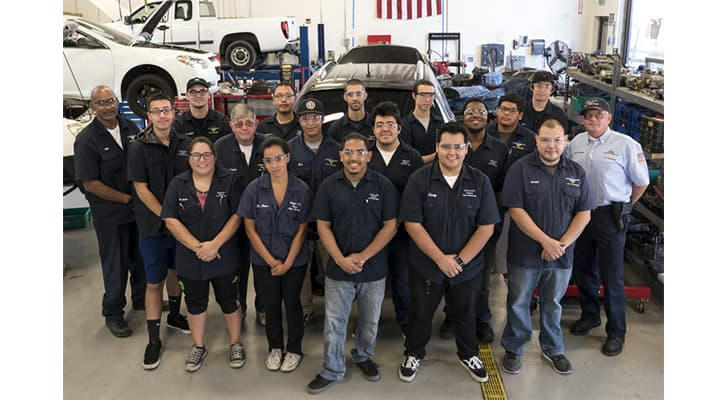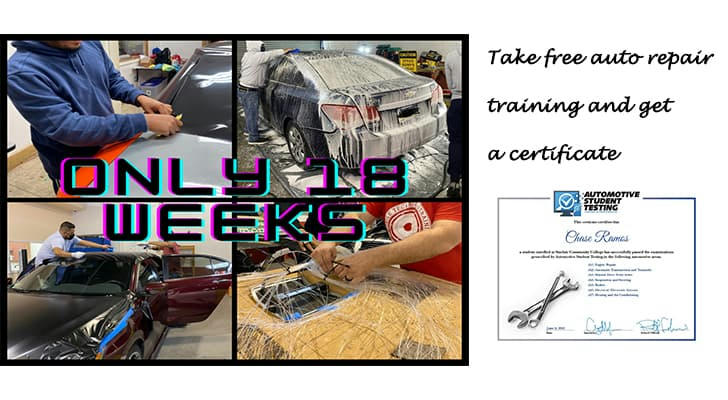The Magic of Vehicle Repair: Unlocking Opportunities Through Free Training
Have you ever found yourself captivated by the mechanics of a car and wondered what it takes to really understand this engineering marvel? The world of auto repair can seem as complex as it is fascinating, but surprisingly, it's an avenue open to everyone—often at no cost. Imagine transforming this curiosity into a professionally rewarding career, or simply acquiring invaluable skills that could serve you for life. In this article, we'll explore the world of free auto repair training programs, unravel the benefits they offer, and outline the pathways available to you.

Industry Demand and Career Prospects
The automotive field highly values trained personnel. A well-trained auto technician can expect competitive salaries and job security. Consider John, a young car enthusiast who ventured into a free auto repair program. His journey led him to an automotive technician role at a prestigious service center, earning him $45,000 a year—a figure poised to grow as he gains more experience.
Here's a closer look at how salaries in the auto repair sector can vary:
| Job Role | Entry-Level Salary (USD) | Mid-Level Salary (USD) | Senior-Level Salary (USD) |
|---|---|---|---|
| Automotive Technician | $38,000 - $48,000 | $45,000 - $55,000 | $60,000 - $75,000 |
| Diesel Mechanic | $38,000 - $48,000 | $50,000 - $65,000 | $70,000 - $85,000 |
| Auto Body Repair Technician | $35,000 - $46,000 | $47,000 - $57,000 | $62,000 - $80,000 |
| Automotive Service Manager | $48,000 - $58,000 | $60,000 - $75,000 | $80,000 - $100,000 |
| Master Technician | $52,000 - $67,000 | $70,000 - $85,000 | $90,000 - $120,000 |
These salary ranges provide a general idea of compensation within the auto repair industry, and they reflect different levels of experience and specialization across the field.

Personal Growth and Skills
Aside from employment prospects, auto repair training can significantly enhance your skill set. You'll learn to troubleshoot and rectify vehicle issues, skills that are applicable in everyday life and can save you substantial money on personal vehicle maintenance.
Paths to Free Auto Repair Training
The question remains: how can one access such beneficial training without bearing significant costs? Fortunately, the routes to free auto repair training are numerous and diverse.
1. Community College Programs: Many community colleges offer automotive technology courses as part of initiatives to develop the local workforce. These institutions often provide these courses at minimal or no cost to students, removing financial barriers to education.
2. Technical and Vocational Schools: These schools frequently partner with organizations to offer sponsored classes for participants. Grants and scholarships are often available, with a focus on creating a skilled workforce.
3. Nonprofit and Charity Organizations: Organizations like Goodwill regularly extend job training programs, aiming to equip individuals with employable skills, including auto repair, often free of charge.
4. Online Learning Platforms: Websites such as Alison and Udemy sometimes provide free or low-cost introductory courses on auto repair. These can serve as an excellent springboard for beginners looking to dive into the subject.
5. Government Programs: Many states have workforce development programs aimed at enhancing employability skills among residents, often including auto repair training.
Structure of a Typical Course
Free auto repair courses usually encompass both theoretical and practical components, structured over weeks or months. Participants can expect a rounded education, covering crucial areas like:
• Introduction to Automotive Systems: Basic engine components, electrical systems, and diagnostic tools.
• Practical Workshops: Supervised, hands-on learning in repairing and maintaining vehicle systems.
• Advanced Diagnostics: Techniques using specialized equipment to solve complex automotive issues.
Certifications: The Next Step
After completing a course, acquiring certifications such as the ASE (Automotive Service Excellence) can exponentially increase employability and credibility in the industry. Certifications validate your expertise and open doors to more advanced career opportunities.

Typical Examples
For individuals like Melissa, who thrived after embracing auto repair training, the benefits are clear. Transitioning from a different career background, Melissa found her calling in automotive technology. Her skills and certifications led to a job offer where she quickly progressed to a senior technician within two years, overseeing complex repair projects and further increasing her annual earnings.
CONCLUSION
Free auto repair training courses offer more than just educational benefits—they provide a pathway to a stable and fulfilling career in the automotive industry. By seizing these training opportunities, you equip yourself with the skills that are in high demand. The journey begins with mastering the fundamentals and embracing each hands-on experience. With perseverance, drive, and the proper training, you can embark on a rewarding career that ensures success and satisfaction. Whether you’re passionate about the mechanics of vehicles or seeking a new career path, the automotive world awaits your expertise—take the wheel and shift into gear today!
